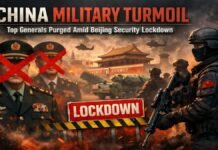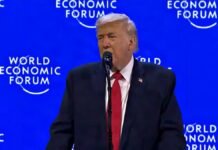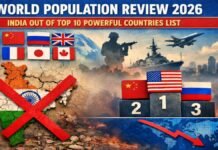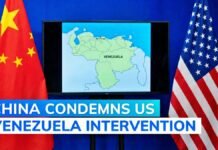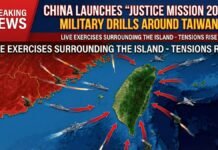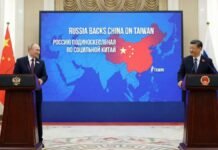
Key Points:
- Chinese President Xi Jinping vanished from public view for 16 days (May 21–June 5, 2025), with no official appearances or statements.
- Major reshuffles occurred in the People’s Liberation Army (PLA) during Xi’s absence, including the removal of top generals and changes in key commands.
- China’s economy is facing mounting challenges, raising questions about Xi’s grip on power and internal party stability.
- Premier Li Qiang and Deputy PM He Lifeng represented China in Xi’s place, while state media omitted Xi’s images and statements.
- Analysts are divided: some see a strategic move to consolidate power, others suspect rising internal dissent or health concerns.
—
New Delhi: China is abuzz with speculation after President Xi Jinping disappeared from public life for 16 days, from May 21 to June 5, 2025. During this period, Xi made no public appearances, issued no statements, and was conspicuously absent from state media, including the influential People’s Daily and Xinhua News Agency. This level of silence from China’s most powerful leader has rarely been seen since he took office, especially after 2017.
Leadership Vacuum: Others Step In
In Xi’s absence, Premier Li Qiang and Deputy Prime Minister He Lifeng took on the role of meeting foreign dignitaries and handling state affairs. The lack of any official explanation for Xi’s disappearance has only fueled rumors and uncertainty within China and abroad.
Even during a major loyalty oath ceremony on June 6, where over 50 ministers and senior officials of China’s State Council pledged allegiance, Xi was not present. Instead, officials cited “Xi Jinping Thought” from the stage, signaling that his ideological influence remains central, even if his physical presence was missing.
PLA Shakeup: Major Military Restructuring
Xi’s absence coincided with a dramatic reshuffle in the People’s Liberation Army (PLA). Since 2023, several high-ranking military leaders have been abruptly removed, including:
- General He Weidong (Vice Chairman, Central Military Commission)
- General Miao Hua (Chief of Political Work)
- General Lin Xiangyang (Head, Eastern Theater Command)
Key commands such as the Rocket Force and Western Theater Command have also seen leadership changes. These moves suggest deep-rooted concerns about loyalty, internal security, or possible factional struggles within the military—an institution Xi has worked hard to bring under his personal control.
Economic Pressures Add to Uncertainty
Xi’s disappearance comes at a time when China’s economy is facing significant headwinds. Slowing growth, real estate troubles, and rising unemployment have put additional pressure on the Communist Party’s leadership. The timing of the military and political shakeups, alongside economic woes, has led analysts to question whether Xi’s authority is being challenged from within.
Analysts Divided: Strategic Retreat or Signs of Trouble?
- Strategic Silence? Some experts believe Xi’s absence may be a calculated move, allowing him to quietly reconfigure the power structure, root out dissent, or prepare for a new phase of leadership.
- Warning Signs? Others interpret the silence as a sign of mounting opposition or even potential health issues, especially given the simultaneous military “surgery” and lack of public engagement.
So far, the Chinese government has offered no clarification, leaving room for speculation and concern both domestically and internationally.
What’s Next for China?
Xi Jinping’s prolonged absence, combined with sweeping changes in the military and ongoing economic challenges, has created an atmosphere of uncertainty in China. Whether this is an alarm bell for deeper instability or a strategic maneuver by Xi to cement his control, only time will tell.






































